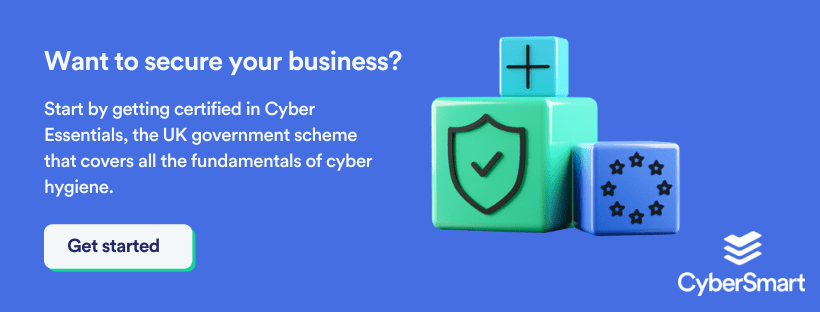The fifth generation of wireless technology, or 5G, promises many things. But beyond grandiose pledges of hyper-connected living, truly scalable virtual reality, and a new golden age for business, 5G’s rollout has been far from smooth.
Unless you’ve (wisely) been consciously ignoring the news, it’s hard to miss the furore surrounding 5G. First, came British 5G towers being pulled down and set on fire due to COVID-19 conspiracy theories. Next, the UK’s decision to ban Chinese firm Huawei from its 5G network. Then, a backlash from environmental activists lamenting 5G’s potential footprint.
But away from the big headline stories, there’s another side to 5G. It’s a potential gamechanger for small businesses.
What benefits does 5G offer to small businesses?
5G provides a host of benefits to small businesses, ranging from the simple to the fantastical.
Speed
5G networks are engineered to be fast. Really fast. The most transformative part of 5G is its ability to reduce the time (or ‘latency’ if you prefer the techy term) it takes for data to get from one point to another. 5G promises speeds up to seven times faster than the fastest 4G browsing experience.
For small businesses, this could improve everything from communication with customers to remote working to video conferencing.
Smart offices
The term ‘smart office’ was all the rage a couple of years ago. We were promised a world of self-booking meeting rooms, automated energy controls and desk-monitoring software. The theory went that this would usher in a new era of happy, engaged employees, optimised office spaces, and reduced real estate costs.
However, at the time, the technology to truly automate the office environment wasn’t quite there. With 5G, that’s all about to change. The availability of superfast internet could finally make smart offices available, for very little cost, even to small businesses.
Looking to improve cybersecurity in your business? Start by getting Cyber Essentials certified.
Real-time communication
5G’s low latency could transform the way businesses communicate. Imagine a world in which your interactions with customers, staff and employees took place instantly, wherever they are in the world.
No more waiting for emails to come through. Files uploaded to shared drives in seconds. And, video conferencing that doesn’t freeze every five minutes. That’s the future 5G promises.
Remote working
Unless you live in Sweden or have been extremely lucky, chances are you’re reading this at home. Most businesses have had to learn how to work remotely in the last six months. And, for the most part, we’ve all adapted well.
However, we’re all familiar with the problems working from home presents. How well you’re able to work remotely largely depends on the quality of your internet connection. The additional capacity and speeds 5G offers could change this. Instead of playing the postcode lottery, employees will be able to access high speeds and low latency in even the worst internet black spots.
IoT
The internet of things (IoT) is another term you’ll have heard a lot in the last few years. But beyond many of us using voice-controlled devices in our homes, it’s yet to really take off.
5G’s improved connectivity will allow businesses to link up everything from printers and smartphones to office monitoring software.
The bottom line
In short, 5G will make small businesses more efficient, extending their ability to do more with fewer resources and in less time. And this won’t just save costs, it’ll also improve customer experience and boost revenue as a result.
What risks does bring 5G bring for SMEs?
Unfortunately, the benefits of 5G apply to cybercriminals as much as they do businesses.
More attacks
Although stronger, faster connections are a boon for small businesses, the same is true for cybercriminals. As businesses use 5G as a platform to innovate, so will the bad guys. 5G provides a better tool to launch sophisticated cyberattacks faster, more efficiently, and in greater numbers.
More opportunities for cybercriminals
5G enables greater use of IoT devices. And this will have huge benefits for small businesses.
Gartner predicts that there will be 20.4 billion IoT devices in use globally by the end of this year – just in time for the widespread launch of 5G.
However, with more connected devices, comes more opportunities for the bad guys to break in. It only takes one poorly secured device for cybercriminals to find their way in. And, while it’s always been the case that one weak link is enough, IoT devices increase the risk simply because there are so many of them.
Decentralisation could lead to disruption
This risk is a little more complex, so bear with us while we run through a short history lesson on network security.
Traditionally, networks were hub and spoke designs. Essentially, everything flowing through a network eventually came back to the central hub, usually a data centre. This made practising good cyber hygiene pretty simple, as you could protect everything from this central point.
With 5G, these ‘hubs’ are decentralised to a web of digital routers throughout the network. This means that there isn’t a central point where everything can be checked and cybersecurity protocols put in place. Instead, this needs to be done throughout the network, upping the chances security will be overlooked and cybercriminals given a route in.
What should you do to protect your business?
Although some of the risks we’ve outlined above are the responsibility of internet service providers, you should never rely on secondhand security alone. There are plenty of things you can do to ensure your business reaps the rewards of switching to 5G, without exposing it to greater risks.
Check the right security is in place
Run regular checks to ensure every device used in your business is equipped with the best security capabilities. This includes any IoT devices you’re using such as voice assistants or smart printers. Tools like CyberSmart Active Protect can help automate this process, by running a scan of all devices every 15 mins.
Make sure software is up to date
No one likes running software or operating system updates, but it is important. Often software providers will include patches to fix known vulnerabilities in updates, protecting you against new cyber threats. Ensure all software is configured to update automatically across all company devices or perform regular checks.
Get Cyber Essentials certified
According to a report from Lancaster University, the measures laid out by the UK government’s Cyber Essentials (CE) scheme can mitigate 98.5% of cybersecurity risks. If you’re not already CE certified, following the process will help you build a great base level of security before you make the jump to 5G.
Maintain good password hygiene
We say it a lot, but setting up a password policy and ensuring everyone follows is a vital step. Always use complex passwords, change them regularly, and set up two-factor authentication,
Clear security policies
If you don’t have a security policy in place for 5G and the use of IoT, now’s the time. But it’s not enough just to have a security policy in place, your people also need to understand it. Check all security policies for workers are clear, easy to follow and stored in a central location everyone can access.
5G is here. In less than four years time one billion devices will rely on it, and your business will very likely contain some of them. Of course, this brings risks. But the bad shouldn’t outweigh the good. By adopting a policy for 5G early and establishing simple, but effective security protocols you can make sure your business is primed to ride the next great wave of connectivity.
Looking to improve your cybersecurity but not sure where to begin? Start by getting certified in Cyber Essentials, the UK government scheme that covers all the fundamentals of cyber hygiene.

